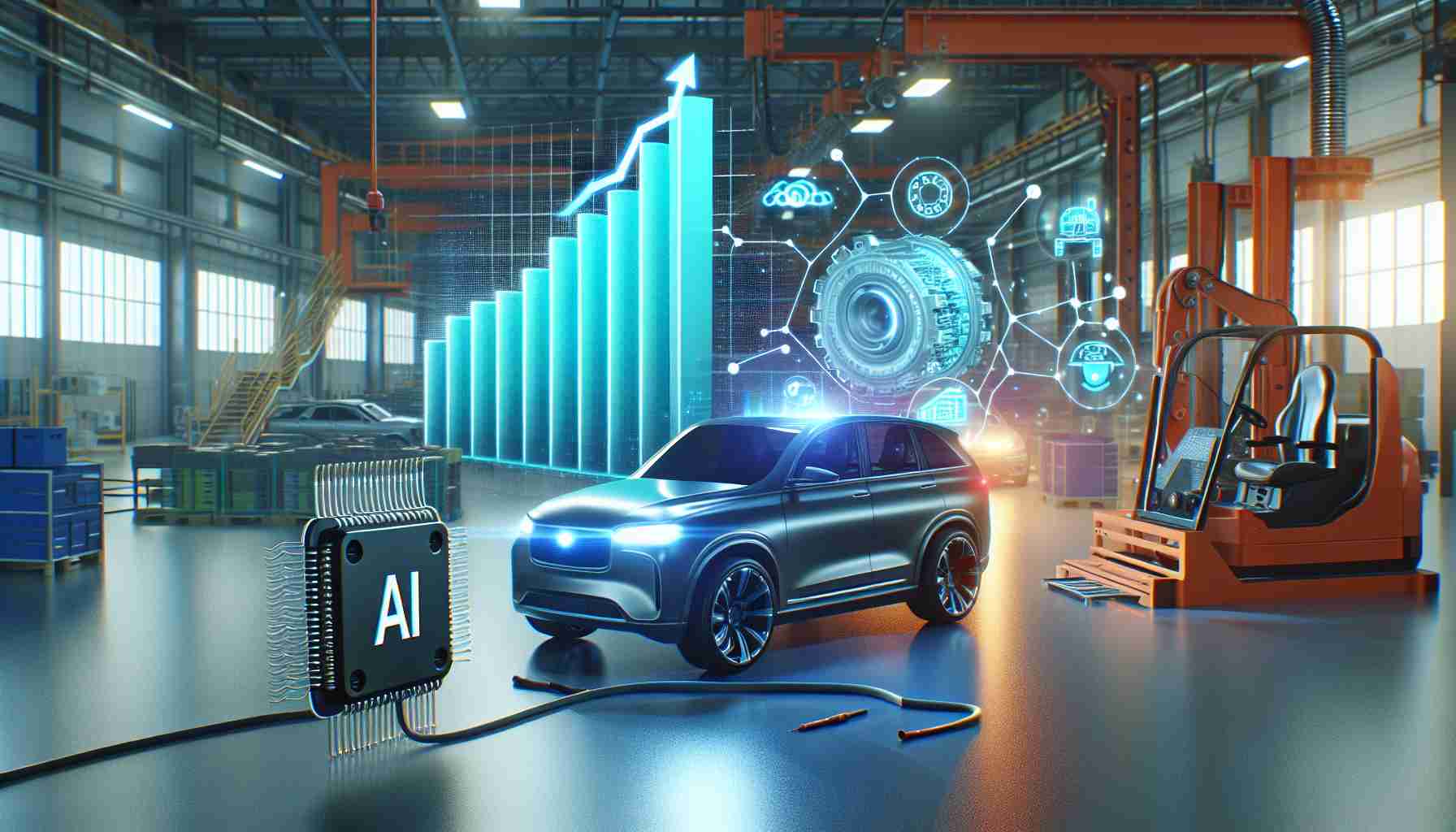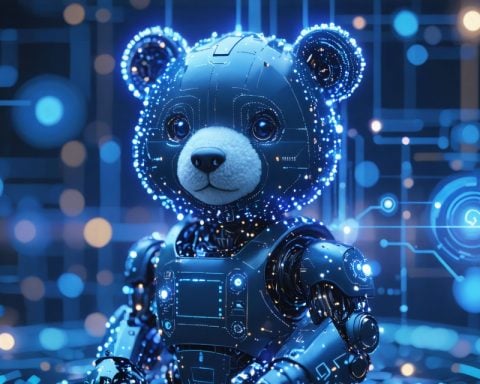- Tesla is integrating AI into operations beyond autonomous vehicles, focusing on manufacturing and grid management.
- CEO Elon Musk outlined a vision where AI boosts profitability through advanced techniques and efficiencies.
- This pivot could position Tesla as a transformative player in technology, not just an automotive leader.
- AI-driven manufacturing might streamline production, reduce costs, and potentially reshape profit margins.
- Investors and analysts see potential for earnings to exceed current forecasts due to AI advancements.
- Tesla’s approach offers a potential blueprint for automakers to embrace AI in vehicle production and infrastructure management.
In a bold move during the latest earnings call, Tesla hinted at a future where Artificial Intelligence (AI) could significantly boost the company’s profitability. While Tesla’s recent financial results showed a mixed bag of achievements, the real revelation was the company’s pivot towards integrating AI into their operations beyond just autonomous vehicles.
CEO Elon Musk highlighted Tesla’s AI vision that extends into advanced manufacturing techniques and even AI-optimized grid management. As traditional automakers scramble to match Tesla’s electric vehicle (EV) offerings, Tesla is propelling forward, leveraging AI in ways previously unexplored in the automotive industry.
This development raises intriguing opportunities and questions. Could AI-driven manufacturing cut costs and streamline production lines? More so, could this new tech approach position Tesla as not just an automotive leader but a transformative tech player? The integration of AI is poised to redefine efficiencies, potentially reshaping profit margins.
Investors at the call were excited by the sneak-peek into Tesla’s AI-powered aspirations. Early analysts had not priced in these AI advancements into their forecasts, suggesting that Tesla’s future earnings may exceed current predictions.
As industries globally integrate AI, Tesla’s strategy presents a blueprint for how automakers might embrace this technology, redefining vehicle production and infrastructure management. With AI capabilities evolving rapidly, Tesla’s vision invites speculation and excitement, setting the stage for an era where AI might not just be an auxiliary tool but a central engine of growth for the company’s bottom line.
How Tesla’s AI Vision Could Disrupt Global Industries
Market Forecasts
Tesla’s ambitious integration of Artificial Intelligence (AI) could mark the beginning of transformative changes across various industries. By enhancing manufacturing techniques and grid management, Tesla might redefine the limits of profitability and efficiency in the automotive sector. Analysts now suggest that Tesla’s AI-driven advancements may lead to substantial growth, potentially outpacing earlier earnings projections by a significant margin.
Innovations and Features
Tesla’s AI innovations extend beyond autonomous vehicles. The company’s focus on AI for advanced manufacturing processes includes implementing smart sensors, predictive maintenance, and real-time quality control. These features aim to reduce production costs and improve efficiency. Additionally, AI-optimized grid management could enhance energy distribution networks, maximizing the utilization of renewable resources.
Sustainability and Security Aspects
Tesla’s AI approach offers potential improvements in sustainability by optimizing energy use and minimizing waste. AI-driven manufacturing can significantly reduce carbon emissions by refining energy-intensive processes. However, security concerns arise with increased AI integration, requiring robust cybersecurity measures to protect sensitive data and systems from potential threats.
Key Questions and Answers
1. How will AI-driven manufacturing affect Tesla’s production costs?
Manufacturing costs are expected to decrease as AI optimizes production line operations, reduces waste, and increases output quality. By automating and refining processes, Tesla can lower expenses and increase profit margins, potentially passing savings onto consumers.
2. Can Tesla’s AI strategies influence how other automakers implement technology?
Yes, Tesla’s AI advancements could serve as a model for other automakers seeking competitive advantages. AI offers potential enhancements in productivity and cost-effectiveness, encouraging widespread adoption and innovation throughout the industry.
3. What are the potential risks of integrating AI into Tesla’s operations?
While AI offers numerous benefits, potential risks include data security breaches and system reliability issues. Tesla must implement stringent cybersecurity protocols and ensure AI systems are robust and reliable to maintain operational integrity and customer trust.
For more information on Tesla’s latest innovations and strategies, check out their [official website](https://www.tesla.com).


















